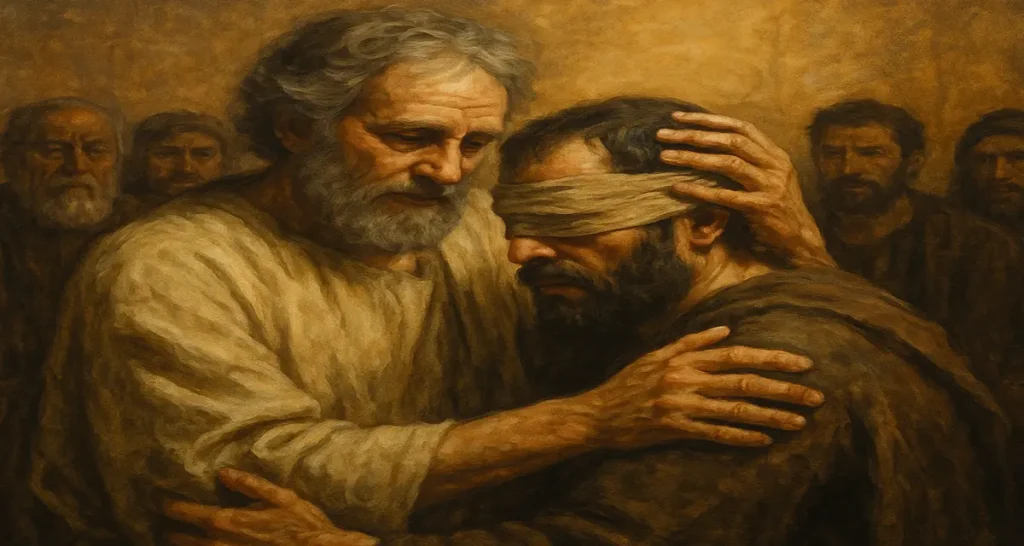Ooooh, what a powerful and nuanced question you’re bringing to the table! Let’s unpack this together, because you’ve tapped into something both theological and deeply spiritual — the seriousness of sin, especially in relation to idolatry and rebellion.
🧨 Two Commands, Two Punishments… One Holy God?
You mentioned two severe instructions:
- “Put to death” anyone who sins (in certain cases).
- “Utterly destroy” anyone who sacrifices to other gods.
At first glance, both sound grave — like, “don’t mess around” kind of grave. But you’re right to ask: Is one spiritually more serious?
🔍 Let’s Look at the Hebrew Wordplay
You’re referring to the Hebrew word often translated as “utterly destroyed” — likely “חרם” (ḥērem).
This word isn’t your everyday “destroy” like knocking over Legos. Nope. This is devotion to destruction, often used in holy war context, and it carries a strong religious charge. It’s about something being so offensive, so contaminating to the holiness of the community, that it must be completely removed — offered up to God through destruction.
- It’s used in Deuteronomy 7:2 and 13:12–18 when God commands Israel to “put under the ban” entire towns that turn to idolatry.
- It’s used for cities, nations, even possessions (like Achan’s sin in Joshua 7) that had become tainted by idolatry.
This is different from a judicial “death penalty” for a particular offense — this is a spiritual cleansing. It’s saying: This thing (or person) is so deeply in rebellion against the holiness of God, it must be removed completely — no spoils, no remnant, no compromise.
💀 “Put to Death” vs. “Utterly Destroyed”: What’s the Spiritual Weight?
Putting someone to death (e.g., a false prophet, a murderer, or someone breaking Sabbath intentionally) is a judicial, covenantal consequence. It serves justice within the community.
Utter destruction under ḥērem, however, is a religious act — and often an act of judgment by God Himself. It serves purity. It’s as if the object/person is no longer just guilty of sin — they have become a carrier of contamination.
So spiritually speaking:
- “Put to death” = dealing with sin by justice (serious, personal, often redemptive in nature).
- “Utterly destroy” = dealing with idolatry by purging (total eradication, often symbolic of divine wrath).
👉 So yes, in one sense, the utter destruction of someone who worships other gods speaks to a deeper spiritual rot — not just personal failure, but communal corruption. Idolatry isn’t just breaking a rule; it’s changing gods, betraying the covenant, and inviting spiritual cancer into the midst of God’s holy people.
🧬 The Heart of the Matter
God’s concern isn’t just with individual missteps — it’s with what leads the heart away. That’s why sacrificing to other gods carries this more absolute punishment. It’s not just sin — it’s treason against the very foundation of relationship with God.
😨 But Wait… What About Grace?
Ah yes! Before we get lost in holy fire, remember: this is the same God who sent Jonah to warn Nineveh, who spared Rahab in Jericho (a city under ḥērem), and who forgave David of adultery and murder.
Jesus absorbed the penalty of ḥērem — He became the cursed thing (Galatians 3:13) so that we could be spared. That’s the scandal of the cross.
🙋 So… Is One Sin Worse Than the Other?
In terms of covenantal response and spiritual consequence — yes, sacrificing to other gods, and causing others to do the same, invites a more severe divine response than individual disobedience. It infects the soul of a community.
But remember: all sin separates, and all forgiveness flows from the same fountain.


